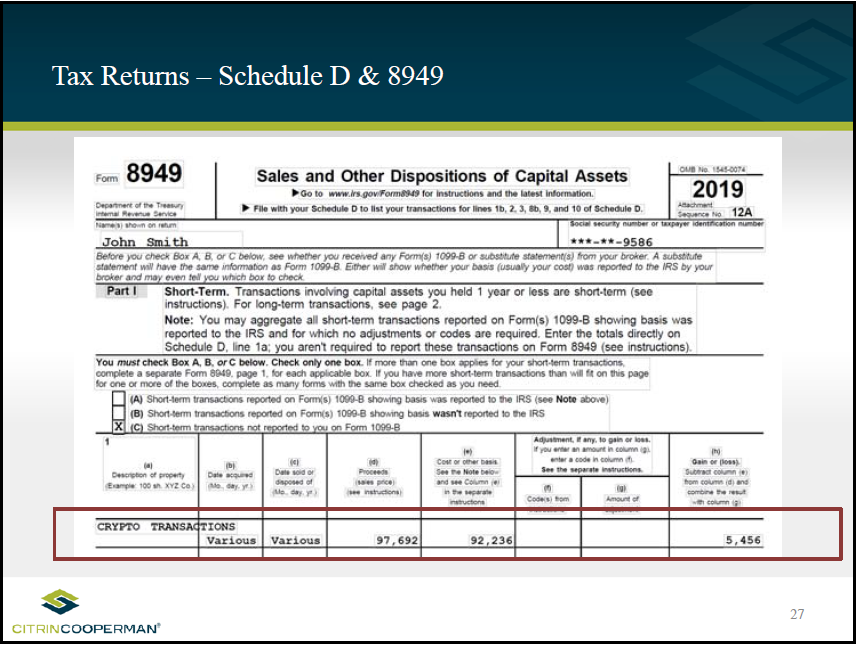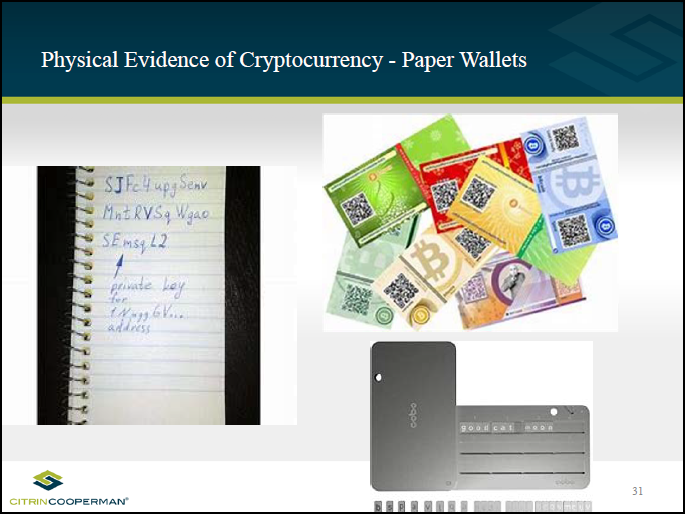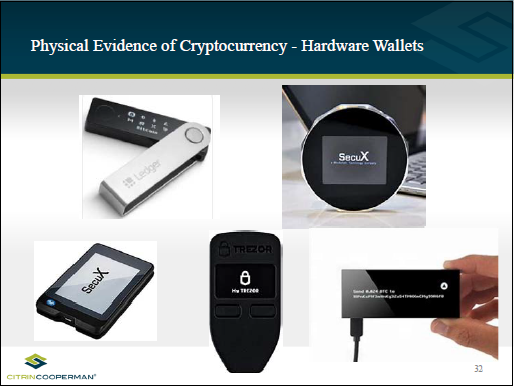Five Areas to Explore If You Suspect a Spouse Is Hiding Crypto Assets in a Marital Dispute
In BVR’s recent webinar, Cryptocurrency Fraud and Forensics: What Valuation Professionals Need to Know, forensic and cryptocurrency experts Katerina Gaebel and Mark DiMichael, both of Citrin Cooperman, covered various hot topics on fraud and forensic accounting issues in digital assets and how they affect the business valuation profession. Here, we summarize five key areas where one would find proof of crypto asset fraud in a marital dispute, including interviews, tax returns, bank accounts, credit card statements, and more. To access the complete session, be sure to check out the webinar recording and transcript.
1. Interviews, depositions, and discovery
One way of finding information on cryptocurrency fraud in a marital dispute is by talking with people through the discovery process. If possible, you might want to interview the target of your investigation because he or she will have a lot of information that may be revealed in an interview. This information could potentially be shared during deposition.
2. Tax returns, bank accounts, and credit card statements
Another area to explore are loan applications and tax returns. If a person is trying to hide assets from you, perhaps in a divorce case, and he or she is not disclosing Bitcoin or cryptocurrency on his or her net worth statement, he or she might record it on a loan application because, obviously, when you are applying for a loan, you want to look the best that you possibly can. Check out the example below.


When searching financial documents, search for:
- Anything with the word “coin” in it;
- Anything with the word “crypto” in it;
- Transfers to gambling websites;
- Unusual or large ATM withdrawals, cash withdrawals, or other payments; and
- Popular exchanges that accept US dollars.
3. Physical searches for wallets
Accessing electronic devices can also potentially be done through either a court order or discovery process. Obviously, electronic devices are very important when it comes to cryptocurrency because you have to be online in order to transact in cryptocurrency.
You wouldn’t be looking for a software wallet because that is just going online, and everything is online with a software wallet, so you will look for a paper wallet and a hardware wallet, examples shown below. (A software wallet is simply an app on your phone or your computer that generates your private keys and tracks your Bitcoin for you. A hardware wallet is a physical device that will hold your cryptocurrency keys for you and make sure you don’t lose them.)

Above, on the left-hand side is a private key, an alphanumeric character that might look absolutely crazy to somebody who doesn’t know anything about cryptocurrency. But it is just handwritten on a piece of paper. The top right corner is a computer printout showing basically the same thing as what is on the left; it is just in a different format, so it is just showing a QR code instead of handwritten information. The bottom right corner is a device called the Cryptosteel, which holds your wallet seed. Wallet seed is just a bunch of words that are put together that will then make an address.
You can also look for a hardware wallet, shown below. Hardware wallets are just a place to store your cryptocurrency offline. Think of it as a USB drive. You plug it into the computer when you want to use it and then take it out when you are done.

4. Forensic expert analysis of electronic devices
For this area, you’ll want a forensic computer expert that is well versed in electronic devices. He or she can search for a wallet.dat file, which is a file that contains the cryptocurrency seeds that will give you access to the private keys of an individual. The forensic computer expert also might be able to find deleted files. When you delete a file, it is still on your computer until you have overwritten the data.
An expert also can look at web browser history, which can tell you websites where he or she could have potentially spent the cryptocurrency, such as a gambling website or the names of exchanges that he or she is using.
5. Conceptual evidence
It is very important early on to get a handle on what potential sources of evidence are. It is important to interview everybody you can, particularly in a divorce case. People who have cryptocurrency often have a lot of it, and very early investors in cryptocurrency tend to like to talk about it a lot. That is great for investigators because they can hear that information and use it like a road map of what to look for.
It will also impact whether the spouse in the investigation was planning for divorce. If someone has been recently buying crypto and tries to hide it, it may be too late because you can look at the original bank deposits and start tracing it through.
In an alternate scenario, what if a spouse knew he or she would get divorced in a few years? He or she started buying cryptocurrency for cash on the side and was taking small withdrawals from an ATM over a very long period. That will be very hard to trace in a cryptocurrency-type investigation.
If someone is really planning ahead, or he or she is a computer expert and made sure to leave no paper trail, you might need to use traditional forensic accounting techniques or something to that effect. For example, what if somebody had a consulting business and, instead of taking payment in cash, he or she took payment in cryptocurrency? The only way you will uncover that is with traditional forensic accounting techniques such as analyzing the gross receipts of the business, analyzing his or her costs, and looking at contracts.
Whenever you get a little piece of evidence, whatever it is, you want to use that and inform the attorney. Use that as leverage to get more and better evidence.
Conclusion
For more information, be sure to check out the complete recording and transcript of the webinar.
Want to stay current with all the latest happenings in the BV profession? Then subscribe to BVR’s free ezines to guarantee you keep ahead in your profession.
